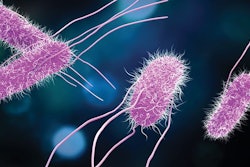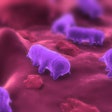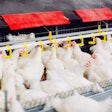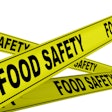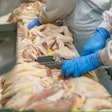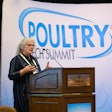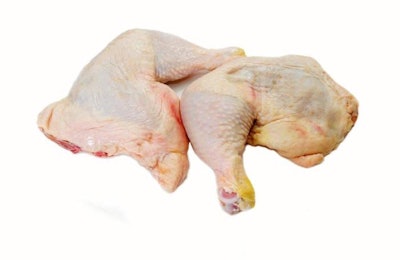
The National Chicken Council (NCC) and National Turkey Federation (NTF), in separate statements said they look forward to working with the U.S. Department of Agriculture (USDA) Food Safety and Inspection Service (FSIS) in its efforts to reduce Salmonella illnesses associated with poultry products.
FSIS announced that it was initiating several key activities to gather the data and information necessary to support future action and move closer to the national target of a 25% reduction in Salmonella illnesses.
The agency, in its announcement, said it intends to seek stakeholder feedback on specific Salmonella control and measurement strategies, including pilot projects, in poultry slaughter and processing establishments. A key component of this approach is encouraging preharvest controls to reduce Salmonella contamination coming into the slaughterhouse. The data generated from these pilots will be used to determine if a different approach could result in a reduction of Salmonella illness in consumers.
NCC statement
Ashley Peterson, Ph.D., NCC senior vice president of scientific and regulatory affairs, stated: “We support modernization, ongoing research, innovation and technology development to better address the food safety challenges of today, and tomorrow. The broiler industry actively supported modernizing the poultry inspection system for more than two decades by volunteering in pilot projects.
“Poultry companies have invested tens of millions of dollars annually in technology and other scientifically-validated measures to enhance the safety profile of chicken products. Continuous inspection and testing by FSIS has demonstrated the long-term success of these interventions in providing a safe, wholesome and affordable protein for consumers.
“While Salmonella prevalence continues to decline, we recognize illness attributed to Salmonella have not. Even with very low levels of pathogens, there is still the possibility of illness if a raw product is improperly handled or cooked. Increased consumer education about proper handling and cooking of raw meat must be part of any framework moving forward. Proper handling and cooking of poultry is the one thing that will eliminate any risk of foodborne illness. All bacteria potentially found on raw chicken, regardless of strain, are fully destroyed by handling the product properly and cooking it to an internal temperature of 165°.
“We pledge to continue to do our part - the industry will remain committed to investing significant resources - at the hatchery, feed mill, farm and plant - to further enhance the safety profile of chicken products. But there is no law, regulation or silver bullet that will make raw chicken a 100% sterile product.
“NCC looks forward to a seat at the table as this framework is developed and we will work to ensure that any decisions are based on sound science, robust data and research, and be proven to have meaningful impacts on human health.”
NTF statement
“All segments of the turkey industry are united in the effort to address food safety challenges. NTF and its members have long shared ideas and research on the most effective ways to control naturally occurring Salmonella in poultry products,” stated NTF President Joel Brandenberger.
“Because there are no simple solutions, improving food safety requires the type of collaborative approach USDA is advocating. NTF supports — and looks forward to participating in — the process outlined by Secretary Vilsack and Deputy Under Secretary (Sandra) Eskin.”


